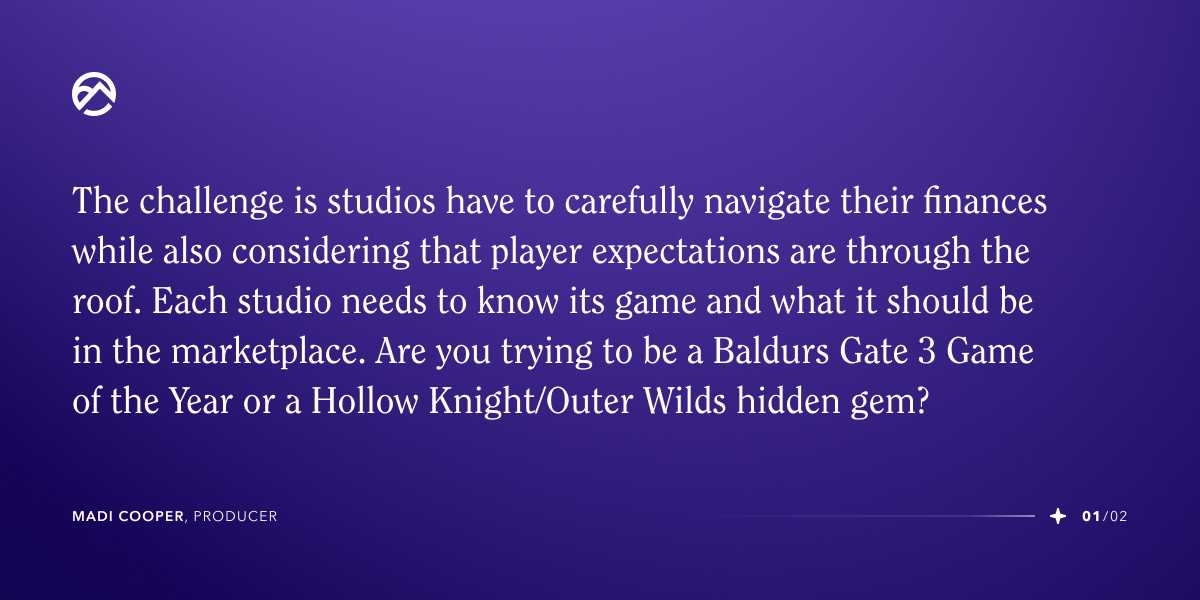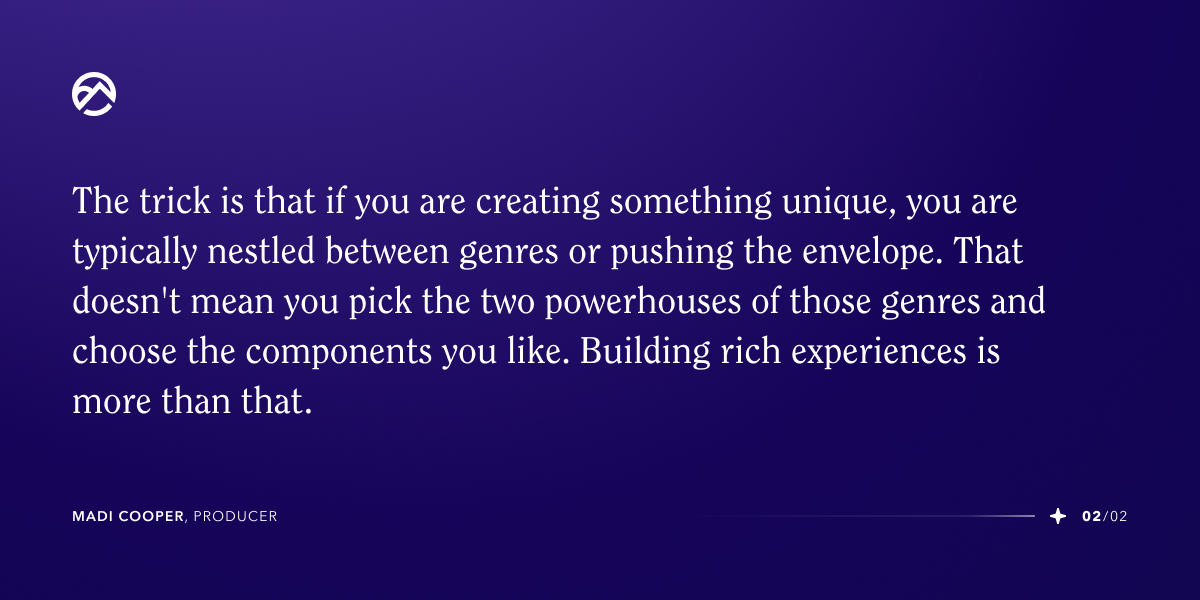“We had elite talent with ex-Bioware veterans and a fantastic narrative department, so we sat down as a unit and weighed out the pros and cons of different strategies to create the quality and quantity of cinematics we desired,” Cooper explains. “Through that decision-making and confidence in our team, we created over 60 minutes of beautiful, shippable cinematic content in under a year.”
Cooper acknowledges that the gaming industry is at a bit of a crossroads, with user acquisition becoming more difficult and obtaining venture funding posing new challenges. She recognizes that studios must navigate their finances and scope more carefully than ever before, all while meeting the sky-high expectations of players.

“The challenge is studios have to carefully navigate their finances while also considering that player expectations are through the roof,” Cooper says. “Each studio needs to know its game and what it should be in the marketplace. Are you trying to be a Baldurs Gate 3 Game of the Year or a Hollow Knight/Outer Wilds hidden gem? Once there is direction, they must execute that well and within scope to make sure it ships.”
Despite the difficulties, Cooper sees opportunities for the rise of indie studios and the studios that sit between AA and AAA. She’s particularly intrigued by the creative freedom that these mid-sized studios can offer, and the potential for veteran developers to create the next big hit.
Looking ahead, Cooper believes that studios need to take a more intentional approach to understanding their target audience and catering to their needs. She emphasizes the importance of staying true to a game’s vision and not getting distracted by shiny objects or the successes of other titles.

“The trick is that if you are creating something unique, you are typically nestled between genres or pushing the envelope. That doesn’t mean you pick the two powerhouses of those genres and choose the components you like. Building rich experiences is more than that,” Cooper explains.
Learn more
____
The ability to truly understand and cater to player expectations will be a critical differentiator for studios looking to succeed.
Companies like EA, Activision, Tilting Point, and Mythical Games are leveraging Solsten’s insights to reliably predict the future success of their games and features. By understanding the psychology of your players, you know what will resonate so you can build with confidence.
We’ve worked successfully with game teams in early development across mobile, PC, and console. This experience has been distilled into an actionable framework that can help any studio adopt a data-driven approach to assessing product market potential.




